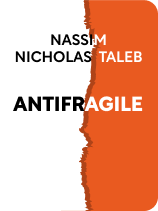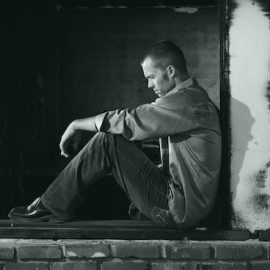

This article is an excerpt from the Shortform book guide to "Antifragile" by Nassim Nicholas Taleb. Shortform has the world's best summaries and analyses of books you should be reading.
Like this article? Sign up for a free trial here .
What is post traumatic stress growth? Can you really grow from struggle and trauma?
Post traumatic stress growth is something the doctors have observed for years. It occurs when someone is improved by the past events they’ve suffered, rather than being weighed down by them.
Read more about post traumatic stress growth below.
Post Traumatic Stress: Growth Through Struggle
Doctors have observed extreme cases of antifragility in humans, which they call post-traumatic growth. In simple terms, it’s the opposite of post-traumatic stress disorder (PTSD). While those who experience the much more well-known PTSD continue to suffer from past events, those who experience post-traumatic growth are somehow improved by it. In fact, there’s a short test that suggests various forms that improvement could take: the Post Traumatic Growth Inventory.
However, while many people may not have heard of post traumatic stress growth, almost everyone has heard some variation of the expression “what doesn’t kill me makes me stronger.” Perhaps this is just another example of domain dependence at work.
Another phrase, “necessity is the mother of invention,” points to another, more immediate, sort of antifragility seen in humans. Basically, what happens is that people overreact to setbacks—they’re spurred to use more energy and effort than is needed to compensate for the problems. That excess energy goes on to become innovation and progress.
The hardship does not have to be extreme nor dramatic—although dramatic hardships have certainly led to some remarkable developments, such as John Hetrick inventing the airbag after being in a near-disastrous car crash with his wife and daughter. However, minor difficulties can also spur people on to greater results.
A speaker who is quiet or hard to understand will capture his audience’s attention more effectively than one who sounds like a trained actor—by straining to hear and understand him, the audience will inevitably pay more attention and retain the information better. Naturally, though, this only works up to a point. An audience that can barely understand the speaker will pay closer attention; an audience that can’t hear him at all will simply give up.
The opposite is also true: A lack of challenge causes people to undercompensate. For example, the automation of airplanes at first actually led to an increase in preventable flying accidents. The pilots were simply becoming complacent and—more dangerously—bored. Their skills and their attention waned, and as a result they got into accidents that more alert pilots wouldn’t have.
Many social scientists will talk about equilibrium, or balance between opposite ideas like supply and demand. In equilibrium, any shift in one of those ideas will be countered by a shift in the other—so if there is suddenly a greater demand for particular goods, the companies who make those goods will start producing more to meet it. Equilibrium is commonly thought of as a desirable state, if not the absolute goal of a healthy economy.
However, if we consider an economy to be a complex, living system (which we’ll discuss in more detail later), then equilibrium could mean death. If the economy is never subjected to stresses or shocks, then it’s deprived of the chance to benefit from antifragility. A system that becomes too stable, too fixed, becomes weak and may be badly damaged or destroyed when such a shock inevitably happens.

———End of Preview———
Like what you just read? Read the rest of the world's best book summary and analysis of Nassim Nicholas Taleb's "Antifragile" at Shortform .
Here's what you'll find in our full Antifragile summary :
- How to be helped by unforeseen events rather than harmed by them
- Why you shouldn't get too comfortable or you'll miss out on the chance to become stronger
- Why you should keep as many options available to you as possible






